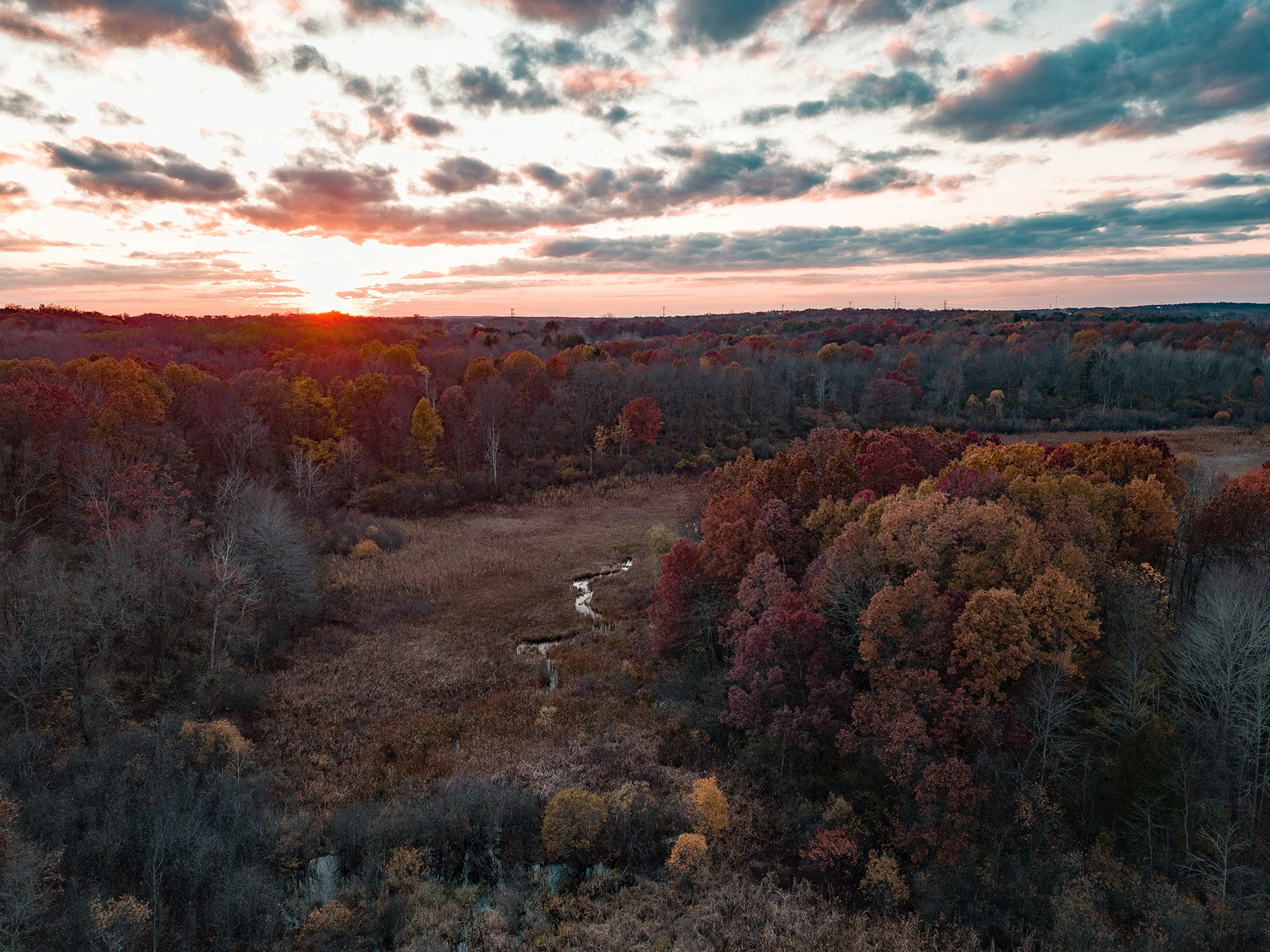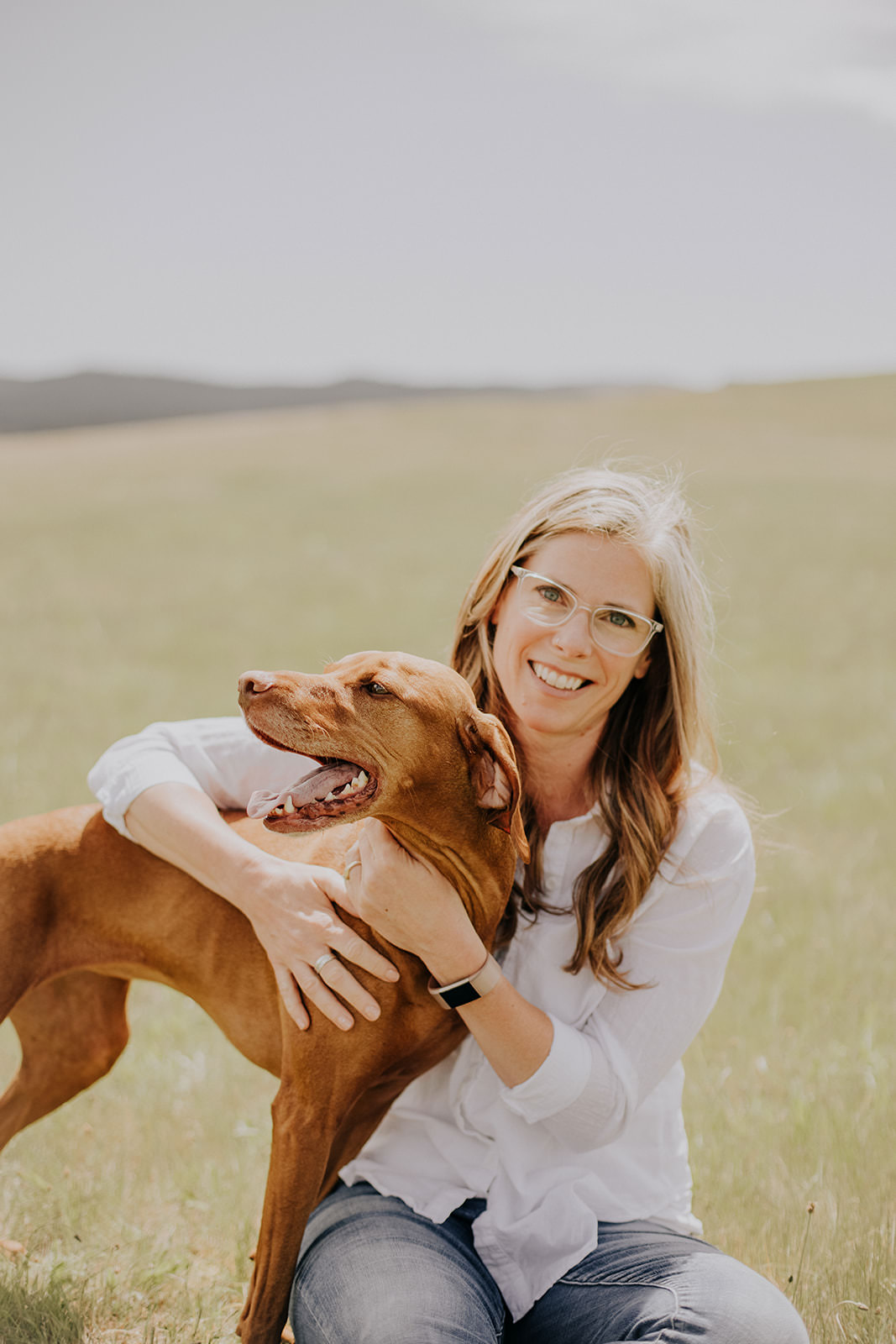In God Walk: Moving at the Speed of Your Soul, author Mark Buchanan asserts that Christianity is a religion lacking a corresponding physical discipline. “Hinduism has yoga. Taoism has tai chi. Shintoism has karate. Buddhism has kung fu. Confucianism has hapkido. Sikhism has gatka. Christianity has nothing.”
He writes this book as an argument that at one time, Christianity actually did have a physical discipline, something concrete and tied to the body in a way that honored and shaped the practices of the faith. Walking, the most pedestrian and universal form of transport, is the method Buchanan asserts has brought spiritual formation and discipline to God’s people since the beginning.
“Walking is medicine, therapy, and workout all bundled together.” But it takes intention to achieve this triple benefit. Rarely is the walking I do as purposeful as the pilgrim’s trek to some holy site. I walk mostly as mode and not means, bustling myself here and there between destinations. Several times a week I purpose to walk for exercise, and Buchanan prompts me to remember that my step count is not as important as walking at God speed—the not-so-metaphorical rate of the soul in step with God.
In June I walked the rolling hills around Flathead Lake in Montana, at the base of the gargantuan Mission Mt. Range. We had a small window of time between school and summer jobs when at least two of our children could make the trip, so Tim and I took our boys to see my dad and his wife in their brand new home. The six of us, accompanied by Dad’s three small dogs, walked the mowed, green trails through wildflowers and tall grasses, Dad telling me how much stronger he’d gotten on the hills since moving there in January. We ambled slowly, but the last 10 years have been rough for his health so it was a grace to even do that. A doe bounded the fence line to stand in the middle of acres of wheat, watching us without fear. Birds uplifted and dove quickly into birdhouses lining the walk. “It’s too bad you live in such an ugly place,” I said to Dad, in the sarcastic vernacular of my family.
Walking is prayer and attention and remembering. Something about moving through the world quietly, without hurry, lacking any intention but to live, makes me feel wholly human—which is to say, created in God’s image. Everything internal in me begins to move to a place of order and peace. In his chapter titled Walking as Attentiveness, Buchanan writes that “walking…keeps driving a place deeper into us and yet keeps opening up its secrets if we are attentive as we walk.” I just barely began to know Dad’s place on my summer visit, but the few walks I had there bound me to a landscape that holds the imprint of my father: his footsteps, the wake of his boat as he fished, the shelves he hung in his new garage, and the 12 paw prints of the dogs he walked daily.
The heart may hold impressions longer than the land.
The already escalated nervous systems of our own two dogs cannot handle us saying the word walk or talk or even rock, and I was happy to see Dad’s dogs behave the same. Nothing will get you out the door for the therapy and medicine and workout of a walk, like the giddy backflips of your dog. Dad has fought so hard for his health and I saw in June how walking those dogs every day was an easy prescription for him, as opposed to the handfuls of pills he had to take.
“Who could not be happy walking a dog?” Buchanan asks. After a chapter on Walking as Exercise and Walking as Friendship, he perfects the combination of the two in a chapter on Walking with Animals. There’s a reason for therapy animals. There’s a reason doctors write patients prescriptions to get a pet. I have never been truly unhappy while walking with my dogs, though I have cried and raged and questioned God on plenty of walks. The goodness of walking is that “…it gets you there and does its work in you as you go.” I usually return happier.
“No other faith, ever, anywhere, is like this, that you can complain to God about God. No other God, ever, anywhere, has acted this way, that he will take the fall for things gone tragically awry. No other God, ever, anywhere, welcomes us to lay the yoke of our sorrow and bitterness on his shoulders and drive the nails of our grievances through his flesh.”
Since they moved and I first saw the pictures of their new home, I have prayed for that beauty to be yet another witness in Dad’s life. I’ve prayed for the people and the landscape to minister grace to him through cracks in the armor, for God to needle through, for the Spirit to woo through such extravagant and unnecessary aesthetics. Dad would always rather be outdoors than in, and he’s suffered and exalted in some of this world’s most rugged and breathtaking terrain.
“…the hard way usually forms us more deeply and lastingly that any shortcut, any easy route, any road that’s well lit and pounded flat. The easy route rarely transforms anyone.”
Dad was well enough on our visit to show us his walking trails and take us fishing in his new boat. He was getting stronger, he said—doing all he could to be healthy. He’d see us in December for our oldest daughter’s wedding. Next summer, our youngest son would maybe come back for a few weeks of fishing with grandpa.
In late August I was making a list longer than my arm of all the tasks I needed to accomplish before starting school, pumping myself up with caffeine and determination, when I got the call from my brother that Dad had taken a turn; might not make it through the weekend; how soon can you be here. Tim rushed home from work to walk me through the haze of decisions and packing, and on Friday our two daughters and I arrived at Dad’s house.
That evening, the three of us walked Dad’s path through dried wildflowers and golden grasses, the fields beginning to offer themselves to autumn. I told the girls all the same things Dad had told me about the trail and the land in June. I told them their brothers had been blessed to walk this way with grandpa, and how glad I was that they had dropped everything to be here with me, now. I plucked heads of rattling wildflowers to take back to Oregon, to remember.
Saturday Dad didn’t get out of bed. I read Isaiah 25:9-10 to him that morning: “On that day it will be said, ‘Look, this is our God; we have waited for Him, and He has saved us. This is the LORD; we have waited for Him. Let us rejoice and be glad in His salvation.’ For the LORD’S power will rest on this mountain.” I reminisced through my childhood to him, reminding him of our hike into Twin Lakes when I was just 8 or 9; our hunting and fishing trips when I struggled to keep up; my wedding day. We had walked together, I reminded him.
On Saturday night, with a windy storm blowing inland off the lake and all of us around him, my dad passed away in his bed.
I’d finished reading God Walk that morning on the porch outside his room, after walking his trail alone. On Sunday morning I walked again and his dogs came with me—anxious and excited, a comfort even in their distraction. I walked farther than before and found new trails I hadn’t seen yet. I cried, and I suppose this was one instance where I was not happy even while walking a dog. But they stopped for me in the trail. They waited to see which way we’d turn, and they stuck by me while I raged at God for all the uncertainty I felt and then cried in thankfulness for all His surrounding goodness. I walked again the next day, and the next, and nothing is sorted out in me yet. This therapy portion of walking is slow.
The last section of Buchanan’s book is about pressing on. The chapters at the end cover suffering and healing, and how walking plays a part in our being made whole—working through addictions, anxieties, the heartaches of life and of our own doing. Throughout the book he blends the metaphorical walking we do, going through life, with the real physical act of walking, as Jesus did on the road with the disciples. The exodus is one example of God working things out in His people by walking. Pilgrim’s Progress is the story Buchanan closes with, to emphasize the slow-going, enduring, plodding growth we go through as we become more like Christ.
“We are made to mature at a snail’s pace,” he says. I identify with that.
This book was timely for me, and practical. There are so many reasons for me to walk and so many ways to enjoy it, but at the bottom, God wants to walk with me at God-speed.
“Of all the benefits of walking, the greatest one, I think, is slowing down: slowing down to catch up—to get alongside the three-mile-an-hour God, to move at the speed of our souls, to pay attention to the world within and without, to savor moments and presence, to listen well and remember well, to dream afresh.”
The featured image is courtesy of Aaron Burden.
You can see more of Aaron’s remarkable images here and here.
Tresta Payne learned to appreciate the beauty of God from the landscape of the Pacific Northwest, where she lives with her husband and four children. She builds her own MFA in creative writing through homeschooling her children and tutoring others, finding every excuse to learn and read and grow. After twenty years of homeschooling she is ready for someone to hand her that degree. She enjoys a good, deep discussion with a balance of differing opinions, and works out her own thoughts in writing. Tresta walks a lot on the wild country roads around her home, with her dog and her thoughts and the nearness of God to keep her company.
Leave a Reply
A Field Guide to Cultivating ~ Essentials to Cultivating a Whole Life, Rooted in Christ, and Flourishing in Fellowship
Enjoy our gift to you as our Welcome to Cultivating! Discover the purpose of The Cultivating Project, and how you might find a "What, you too?" experience here with this fellowship of makers!


Dear Tresta, thank you, thank you for bringing this wonderful book and its ‘pedestrian’ ☺️ yet deeply profound truths to our attention. Even more, thank you for doing so in the tender space of grieving your father’s passing.
Humbled and blessed,
Thank you,
Denise
You are most welcome, Denise—it’s always an honor to share here at Cultivating, among such great company as yourself ; ) Thank you.
Love you, Friend. I’m thankful that you get to walk this season with the Lord. If anyone knows sorrow and suffering, it’s Him, and He is pleased to walk you slowly through it. You are loved.
Thank you for this beautiful meditation on walking with God through difficult seasons. This has been a difficult time for all of us, but I understand personally how hard it is to loose a parent in the middle of it. May God comfort and encourage your heart, one step at a time.